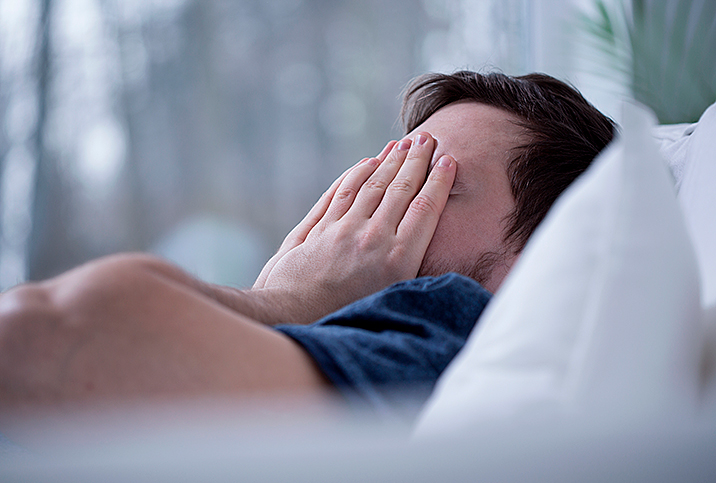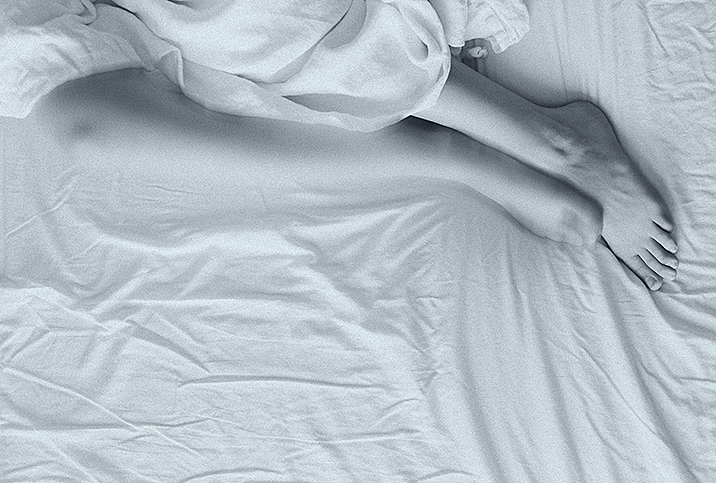When a Lack of Sleep Becomes Dangerous

The list of successful people who get only four hours of sleep a night or less is extensive, purportedly including celebrities such as Elon Musk, Will Smith, Martha Stewart and more. But despite claims that minimal sleep is the key to success, such a habit can be quite dangerous.
According to Katherine Hall, a sleep psychologist with Somnus Therapy, a lack of adequate sleep can affect cognitive abilities and emotional regulation. Despite the fact that the Centers for Disease Control and Prevention (CDC) recommends a minimum of seven hours of sleep for adults older than 18, many people find themselves falling way short of that target.
A lack of sleep is dangerous
Deep sleep occurs during the first half of a sleep session and can help the body repair tissues—including, critically, the neurons that experience wear and tear throughout the day. Not restoring these neurons to normal function can cause physical and psychological issues. Without enough sleep, the body isn't functioning at full capacity and a host of health problems can ensue.
"High blood pressure, heart attack, diabetes, heart failure and stroke are some of the most serious possible consequences of prolonged sleep deprivation," said Shauna Hatcher from the NWPH Dental website. "Immune system degradation, depression, obesity and decreased sex desire are all possible issues. Chronic sleep deprivation might also have an impact on your appearance."
A lack of sleep can impair your cognitive functioning, which, in extreme cases, can affect your ability to drive safely or operate heavy machinery. Those in physical occupations with these requirements need to be mindful.
How people function on less sleep
Some people appear to function incredibly well with little or no sleep. However, these are the people who are most in danger of developing health problems down the road. Some of these people may rely on substances such as caffeine and nicotine, which can worsen insomnia.
"People who don't get enough sleep typically rely on caffeine heavily," explained Po-Chang Hsu, M.D., a medical content expert at SleepingOcean.com. "However, they might want to stick to coffee only in the first half of the day, as caffeine can cause further sleep problems. Sleep-deprived people might also want to incorporate naps into their daily schedules. Those naps should be short (up to 30 minutes) and taken before 3 p.m., preferably."
Though it is possible to function on less than adequate sleep—as many high-profile people frequently boast—the long-term outcomes aren't promising. People who don't get enough rest may struggle to accomplish what they set out to do on a daily basis. This can cause a snowball effect that seriously impacts your quality of life.
The causes of sleep disorders
Of course, some sleepless nights may not be voluntary, and may instead be the result of serious conditions. There are a number of contributing factors when it comes to such sleep disorders.
"Medical issues, like sleep apnea, depression and anxiety disorders, environmental factors, like when it's too bright, and physical disturbances, like headaches and chronic pain [can be possible causes]," said Mya Bellinger, a home-health nurse. However, it's worth noting that insomnia can occur on its own without obvious causes, and that's when you need to visit your local sleep doctor.
When insomnia is caused by environmental factors, it can be remedied by changing your habits or the physical environment around you. For example, you may decide to opt for blackout curtains or to sleep with an eye mask. As long as you don't have too much light—whether it's from screens or outside street lights near your bedroom window—you should be able to get a more restful sleep.
What's the solution?
There are a few easy steps to follow if you're struggling with insomnia.
"Avoid taking caffeine, nicotine or alcohol a few hours before bedtime," said Charlotte Cremers, G.P., currently working in London, England. "Do not nap after 3 p.m. Sleep in a quiet, dark room with medium temperature. Take a shower, listen to soft music or read 30 minutes before bedtime [and] avoid taking large meal portions a few hours before."
The conversation around sleep is evolving as new research becomes available about the effects of long-term sleep deprivation. As of now, what we know is that health problems such as diabetes and high blood pressure can develop over time in people who don't sleep enough. The solution isn't cut-and-dried because all bodies are different. Some people may require sleep medications to remedy a lack of sleep, and others may benefit from more natural methods of sleep induction. Regardless, the bottom line remains: Getting a good solid eight to nine hours of sleep will help you feel your best.

















